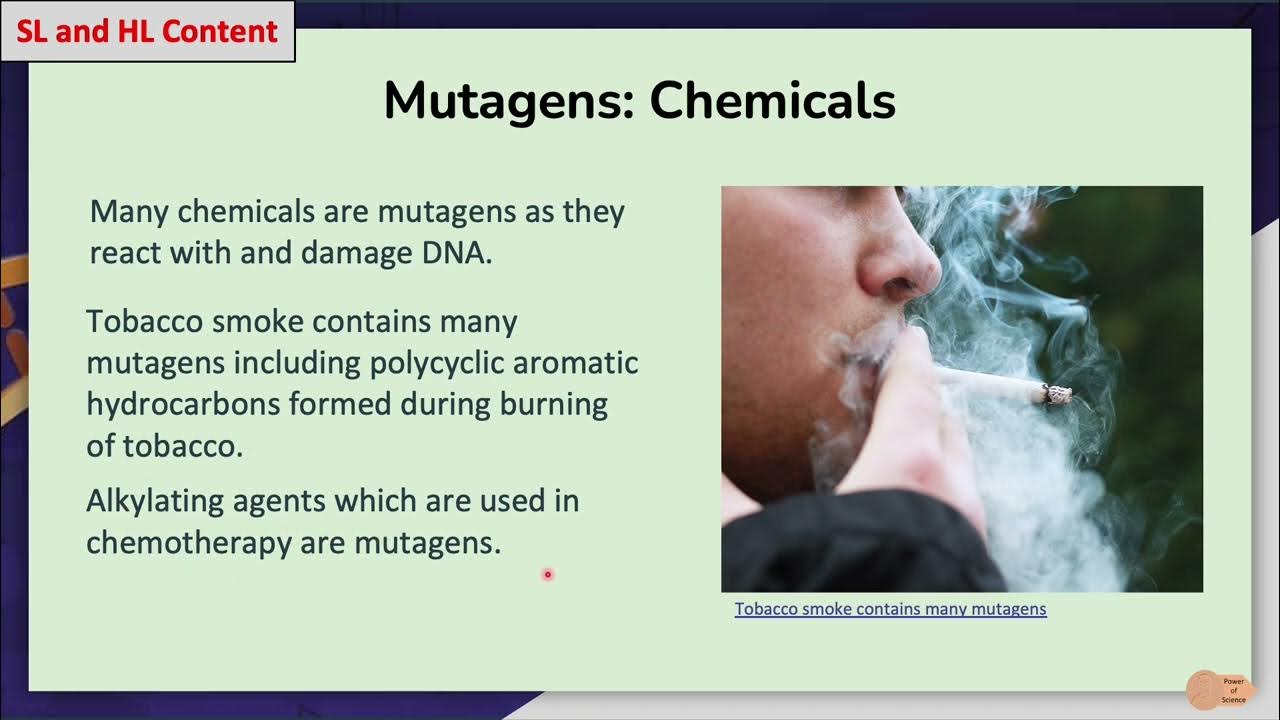proto oncogenes: Genetic basis of cancer
Summary
TLDRThis video explains the causes of cancer, focusing on genetic factors and gene mutations. It highlights the role of proto-oncogenes and tumor suppressor genes in regulating cell growth, division, and survival. The video explores how mutations in these genes can lead to uncontrolled cell proliferation, potentially causing cancer. It also discusses various cellular mechanisms involved in cancer development, including receptor mutations, MAP kinase pathway activation, and chromosomal translocations. Additionally, it touches on the importance of apoptosis and DNA repair mechanisms in maintaining cellular homeostasis and preventing cancer formation.
Takeaways
- 😀 Cancer cases have increased by 45% in the last decade, emphasizing the growing importance of understanding cancer causes.
- 😀 Carcinogens like cigarette smoke are well-known cancer-causing agents, but genetic mutations also play a significant role in cancer development.
- 😀 Proto-oncogenes are essential for normal cell growth, division, and survival, but mutations can turn them into oncogenes, leading to uncontrolled cell proliferation.
- 😀 Tumor suppressor genes help control cell growth; mutations in these genes can decrease their ability to prevent cancer.
- 😀 A gain-of-function mutation in proto-oncogenes can lead to their conversion into oncogenes, causing uncontrolled cell division and cancer.
- 😀 The MAP kinase pathway, a key growth signaling pathway, can lead to cancer when mutations in components like Ras and Cyclin D cause excessive signaling.
- 😀 Chromosomal translocations, like the one involving the C-myc gene and IgH, can drive cancer by causing excessive expression of growth-regulating genes.
- 😀 Mutations in transcription factors can also contribute to cancer by stabilizing mRNA or enhancing downstream signaling pathways.
- 😀 Cancer cells often suppress pro-apoptotic genes and overproduce anti-apoptotic genes, preventing cell death and promoting immortality and uncontrolled growth.
- 😀 DNA repair mechanisms are crucial for preventing cancer; mutations in DNA repair genes or damage detection systems increase the risk of cancerous mutations.
Q & A
What is the main cause of cancer discussed in the video?
-The main cause of cancer discussed in the video is genetic mutations, which can occur in proto-oncogenes or tumor suppressor genes, leading to uncontrolled cell growth and tumor formation.
What are proto-oncogenes, and why are they important for cell growth?
-Proto-oncogenes are genes that are essential for normal cell growth, proliferation, and division. They help regulate the processes that allow cells to grow and survive, making them crucial for maintaining healthy cell function.
How do mutations in proto-oncogenes lead to cancer?
-Mutations in proto-oncogenes can convert them into oncogenes, causing them to become permanently active. This results in excessive cell growth and division, which can ultimately lead to tumor formation and cancer.
What is the role of tumor suppressor genes in preventing cancer?
-Tumor suppressor genes function to inhibit uncontrolled cell growth. They help regulate the cell cycle and prevent tumor formation. Mutations that cause a loss of function in these genes can lead to cancer by allowing cells to grow uncontrollably.
Can you explain the difference between gain of function and loss of function mutations?
-A gain of function mutation in proto-oncogenes turns them into oncogenes, making them always active, leading to excessive cell growth. A loss of function mutation in tumor suppressor genes reduces their ability to suppress tumor formation, also leading to cancer.
What is the MAP kinase pathway, and how is it involved in cancer?
-The MAP kinase pathway is a crucial growth signaling pathway that regulates cell division and survival. Mutations in components of this pathway, such as Ras, can cause it to be constantly active, leading to uncontrolled cell growth and cancer.
What is the significance of cyclin D in cancer development?
-Cyclin D is an important regulator of the cell cycle, specifically the transition from the G1 phase to the S phase. Aberrant mutations or overproduction of cyclin D can lead to uncontrolled cell proliferation, contributing to cancer.
How do chromosomal translocations contribute to cancer?
-Chromosomal translocations can bring a normally regulated gene under the influence of a highly active promoter, leading to its overexpression. This can result in uncontrolled cell growth and cancer, as seen in cancers like Burkitt's lymphoma.
What role do apoptosis and pro-apoptotic genes play in preventing cancer?
-Apoptosis, or programmed cell death, is an essential process to remove damaged cells. Pro-apoptotic genes help regulate this process, ensuring that damaged cells do not survive. Suppression of these genes can prevent apoptosis, allowing cancerous cells to persist.
How do mutations in DNA repair mechanisms increase the risk of cancer?
-Mutations in DNA repair mechanisms can prevent the detection and correction of DNA damage. This leads to an accumulation of mutations, including those in proto-oncogenes, which can result in uncontrolled cell growth and cancer.
Outlines

Esta sección está disponible solo para usuarios con suscripción. Por favor, mejora tu plan para acceder a esta parte.
Mejorar ahoraMindmap

Esta sección está disponible solo para usuarios con suscripción. Por favor, mejora tu plan para acceder a esta parte.
Mejorar ahoraKeywords

Esta sección está disponible solo para usuarios con suscripción. Por favor, mejora tu plan para acceder a esta parte.
Mejorar ahoraHighlights

Esta sección está disponible solo para usuarios con suscripción. Por favor, mejora tu plan para acceder a esta parte.
Mejorar ahoraTranscripts

Esta sección está disponible solo para usuarios con suscripción. Por favor, mejora tu plan para acceder a esta parte.
Mejorar ahora5.0 / 5 (0 votes)






